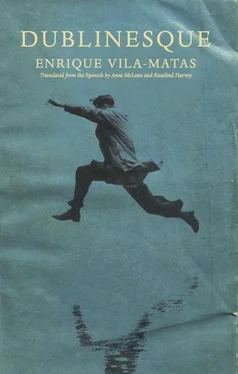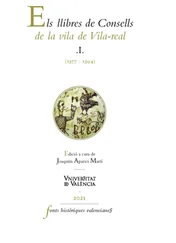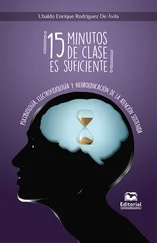Mark Strand’s phrase goes like this: “The search for lightness as a reaction to the weight of living.” Does he really seek lightness? He realizes that everything this evening seems to be directed toward a loss of gravity and heading toward the very moment he has decided to get some air and take the nimble English leap once and for all; he understands that he has actually become someone waiting for this leap, which began as just a pleasant image, a rhetorical figure.
He walks down the hall; he’s going to consult a book by Italo Calvino, which also mentions lightness. And there he discovers the episode of the poet Cavalcanti’s leap. Cavalcanti. In this case, an Italian leap. He’s quite struck by the relative coincidence, and is literally rooted to the spot in the study. And when he finally manages to move, he takes the book and sits down in his favorite armchair. Celia is asleep, probably happy, if one goes by the last words she said to him: “You must always love me like you do today.”
He’d forgotten this leap the nimble Florentine poet Guido Cavalcanti performs in an episode of the Decameron by Boccaccio, and in this casual discovery thinks he’s found one more reason, in his furious obsession and need to be more foreign every day, to take the English leap. To Calvino, nothing better illustrates his idea that there must be a necessary lightness that can be inserted into life and literature than the story in the Decameron by Boccaccio, in which the poet Cavalcanti appears, an austere philosopher who walks around in meditation among the marble tombs of a Florentine church.
Boccaccio tells us that the jeunesse dorée of the city — youths who ride around in a group and who have it in for Cavalcanti because he will never go out on a bender with them — they surround him and try to mock him. “Guido, thou wilt be none of our company,” they say, “but lo now, when thou hast proved that God does not exist, what wilt thou have achieved?” Cavalcanti, seeing he is surrounded by them, presently answers: “Gentlemen, you may say to me what you please in your own house.” And resting his hand on one of the great tombs and being very nimble, he vaults over it, and landing on the other side , he evades them, and goes on his way.
He’s surprised by this visual image of Cavalcanti freeing himself in one leap “ si come colui che leggerissimo era .” He’s surprised by the image, and what’s more, the Boccaccio extract immediately makes him want to land on the other side . It occurs to him that, if he had to choose an auspicious image for the new rhythms his life is moving to, he would choose that one: the sudden agile leap of the poet-philosopher who raises himself above the weight of the world, showing that with all his gravity he has the secret of lightness, and that what many consider to be the vitality of the times — noisy, aggressive, revving, roaring — belongs to the realm of death — like a cemetery for rusty old cars.
And shortly afterward he remembers a few words from a book which, just as with Calvino’s collection of essays, was decisive during his first few years as a reader. This book was Short Letter, Long Farewell by Peter Handke. He read it in the seventies, and thinks he remembers finding in it his generation’s tone of voice, or at least the one he was looking for when he started publishing, because right from the start he believed it wasn’t exclusively writers who had the privilege of choosing a voice, but that the publisher also more than deserved the right to acquire a certain tone and to allow this tone, this style, always to come across in all the books on his list.
And now Riba remembers too that what surprised him most about Handke’s book was that, at the end of the novel, the two young protagonists — the narrator and his girlfriend Judith — speak with the filmmaker John Ford, a character who’s a real person. So characters such as Ford could appear in fiction, even if they weren’t exactly themselves and didn’t say exactly what they might have said in real life? It was the first time he realized doing something like that was possible. And he thought it very shocking, almost as much as the fact that in the novel Ford always speaks in the first person plural:
We Americans always say “we” even when we’re talking about our private affairs. We see everything we do as part of a common effort. . We don’t take our egos as seriously as you Europeans.
Whether solemnly or not, the narrator of Short Letter, Long Farewell always used his “I,” probably because he had studied in Europe. The kind of “I” Handke used was one Riba could immediately imagine influencing him. Since then, in his private life, he has always used a first person singular, although his has been an unnatural “I,” probably because he lost his childhood spirit, that first person inside him that disappeared so early on. And maybe it’s also due to this lamentable absence — because of which he now uses this artificial “I” — that he seems always to be perfectly ready to make the leap over to the other side , that is, fully prepared to become a multiple “I,” in the style of John Ford in the novel, who speaks in the first person plural.
And the fact is, when Riba thinks, he is simply commenting on the world, something he always does away from home mentally and in search of his center. And on these occasions it’s not strange that he suddenly feels he’s John Ford, and also Spider, Vilém Vok, Borges, and John Vincent Moon, and in short, all the men that all the men in this world have been. Essentially, his plural “I” — adopted because of the circumstances, that is, because he has never been able to find the original spirit again — is not that far from Buddhism. Essentially, his plural “I” was always ideal for the job he did. Isn’t a literary publisher a ventriloquist who cultivates the most varied different voices through his catalog?
“Do you dream a lot?” Judith asked.
“We hardly dream at all any more,” said John Ford. “And when we do have a dream, we forget it. We talk about everything, so there’s nothing left to dream about.”
When he was a publisher he never spoke in interviews about the plurality of his first person singular. It would have been good if, for example, he’d said something like this at some point: “You won’t understand, but really I’m like an Irishman who lives in New York. I combine the American ‘we’ with a furiously European ‘I.’”
Would it really have been worthwhile to say something like that? He’s always weighed down by doubt, never sure of anything. But it’s true that with the topic of the plural “I” he could have excelled perfectly. Actually, there were so many things he didn’t say in interviews when he was in publishing. He let himself down, for instance, by trying to be diplomatic and not always saying what he thought of certain dreadful authors he didn’t publish. He probably let himself down, wasted his life, by his ridiculous desire to be too sensitive. He was let down by this and also, obviously, by having the spirit of a son instead of the customary protective fatherly temperament that seems so typical in publishers, although it’s also true that there are quite a few who pretend to have it when they actually lack the most basic paternal instinct.
He remembers that it has been no time at all since he spent an entire morning going around to branches of two different banks and making changes to his investment funds, and yet he sometimes has the impression that an eternity has gone by since that morning. And he observes that even the time when he used to publish all the great literature he could is starting to drift into the distance.
Читать дальше












